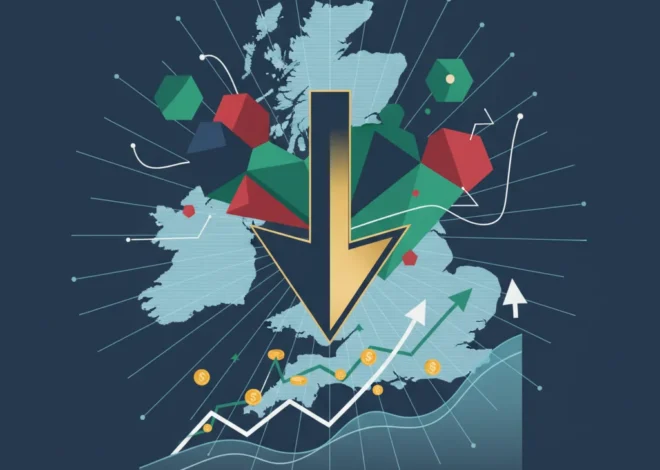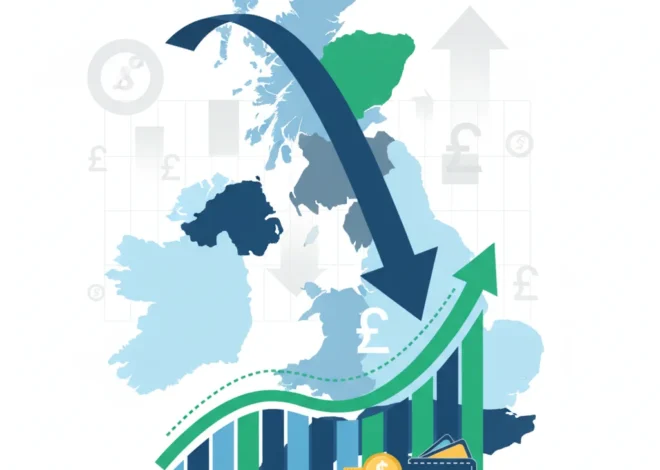
Beyond the Headlines: Why a Top Admiral’s Exit Spells Turbulence for the Global Economy and Your Portfolio
In the world of high finance and strategic investing, the most significant signals often come not from the trading floor, but from the corridors of power. A seemingly isolated news item—the abrupt retirement of a high-ranking military official—can be a harbinger of deep-seated instability with far-reaching consequences for the stock market, international trade, and the global economy. The recent announcement that Admiral Craig Faller, the respected head of US Southern Command (Southcom), is stepping down is one such signal. While the original Financial Times report frames this as part of a broader purge of national security officials under the Trump administration, the implications for investors and business leaders extend far beyond political intrigue.
This is not merely a personnel change; it is a potential fracture in the architecture that secures a multi-trillion-dollar economic zone. To understand why this matters, we must look past the uniform and see the intricate web of finance, trade, and economic stability that Southcom oversees. From the Panama Canal to the burgeoning markets of South America, this command’s mission is as much about economics as it is about defense. Its leadership’s sudden departure raises critical questions about policy continuity, regional stability, and the hidden risks now bubbling to the surface for anyone with capital at play in the Western Hemisphere.
What is US Southern Command and Why Should Investors Care?
For many, the term “military command” conjures images of conflict zones in the Middle East or strategic standoffs in Asia. US Southern Command, however, operates in a different, more complex theater: Central America, South America, and the Caribbean. Its mission is not primarily one of overt warfare but of stability operations, partnership building, and the protection of critical economic lifelines. Southcom’s Area of Responsibility (AOR) is, for all intents and purposes, America’s economic backyard.
The command’s responsibilities directly impact the financial world in several key ways:
- Securing Global Trade Routes: The AOR includes the Panama Canal, a chokepoint through which approximately 3.5% of global maritime trade passes annually. Any disruption, whether from state-sponsored actors, pirates, or regional instability, would send shockwaves through global supply chains and commodities markets.
- Counternarcotics and Illicit Finance: Southcom leads the charge against transnational criminal organizations (TCOs) that funnel hundreds of billions of dollars in illicit funds. This shadow economy destabilizes regional governments, corrupts local banking systems, and creates immense risk for foreign investing. The fight against these TCOs is increasingly a battle of financial technology, as cartels leverage cryptocurrency and sophisticated fintech platforms for money laundering.
- Countering Foreign Influence: In recent years, China and Russia have made significant economic and political inroads in Latin America. They have invested billions in infrastructure, technology, and energy, often creating debt-trap scenarios and gaining strategic influence. Southcom’s role is to counter this expansion and preserve a stable, rules-based environment conducive to transparent Western investment and fair trading practices.
- Disaster Relief and Humanitarian Aid: A stable economy requires a stable society. Southcom is often the first responder during natural disasters like hurricanes and earthquakes, providing aid that prevents humanitarian crises from spiraling into economic collapses and mass migrations. This stability is a prerequisite for long-term investment.
The departure of a seasoned leader like Admiral Faller, who understands these complex interdependencies, creates a vacuum. It signals a potential shift in priorities that could weaken the very foundations of economic security in a region vital to the U.S. economy.
Global Markets in Motion: From Mumbai's New Airport to the Fed's Next Move
The Economic Powerhouse on Our Doorstep: A Data-Driven Look
To fully grasp the financial stakes, it’s essential to quantify the economic importance of the region Southcom oversees. This is not a distant, tertiary market; it is a deeply integrated partner whose fortunes are directly tied to the health of the U.S. economy. The following table highlights key economic indicators that underscore the region’s significance.
| Economic Metric | Significance to U.S. & Global Economy |
|---|---|
| U.S. Trade in Goods | Over $1 trillion annually with Latin America and the Caribbean. Leadership instability can jeopardize these flows. |
| Foreign Direct Investment (FDI) | U.S. is the largest source of FDI in the region. Policy uncertainty increases risk premiums for investors, chilling capital flow. |
| Energy & Commodities | The region is a critical supplier of oil (e.g., Brazil, Colombia), copper (Chile, Peru), and agricultural products. Geopolitical shifts can trigger commodity price volatility. |
| Remittances | A key driver of local economics, with billions sent from the U.S. annually. Regional instability can disrupt this crucial financial lifeline. |
This data illustrates that a stable and secure Latin America is not a foreign policy luxury but an economic necessity. The leadership at Southcom is a key component in underwriting the stability that makes these numbers possible. Any perception of wavering commitment or internal turmoil in Washington can have a chilling effect on the investment climate.
From Geopolitics to Your Portfolio: Mapping the Financial Ripple Effect
How does a leadership change at a military command translate into tangible impacts on the stock market and your investment strategy? The connections are more direct than they appear.
First, consider the impact on supply chain resilience. A less stable Caribbean and Latin America means higher risk for companies that rely on manufacturing, raw materials, or shipping lanes in the region. This includes major U.S. automakers, agricultural giants, and retail companies. A disruption could lead to increased operational costs, lower profit margins, and a subsequent hit to their stock prices. The sophisticated logistics networks that underpin modern commerce are fragile, and Southcom plays a vital role as a regional stabilizer.
Second is the risk to emerging market investments. Latin America has long been a destination for investors seeking growth. However, this growth is predicated on a degree of political and economic stability. The perception that the U.S. is disengaging or in a state of internal turmoil can embolden destabilizing actors, both internal and external. This can lead to capital flight, currency devaluation, and a sharp downturn in regional stock market indices. The economics of investing in these markets suddenly requires a higher risk premium.
The Aadhaar Effect: Why the UK is Eyeing India's Digital ID to Revolutionize Its Financial Sector
Third, we must analyze the impact on the defense and technology sectors. Southcom’s operations require sophisticated technology, from surveillance drones to cybersecurity platforms and advanced financial technology (fintech) tools for tracking illicit money flows. A change in leadership could signal a change in procurement priorities, affecting the revenue streams of defense contractors and tech companies specializing in security and blockchain analytics. As TCOs adopt decentralized finance (DeFi) and blockchain for their operations, the demand for cutting-edge counter-measures is high. Policy shifts can alter the trajectory of this entire sub-sector.
The High Cost of Uncertainty: A New Era of Political Risk
Ultimately, the abrupt departure of a figure like Admiral Faller is symptomatic of a larger issue plaguing the investment landscape: unprecedented policy uncertainty. According to the original report, this move is part of a broader trend of replacing officials with perceived loyalists. For the world of finance, this practice is deeply unsettling. Long-term capital investment, whether in a new factory, a government bond, or a fintech startup, relies on a predictable and rules-based policy environment.
When leadership roles are treated as political spoils, institutional expertise is lost, and long-term strategic planning is replaced by short-term political maneuvering. This dynamic makes it incredibly difficult for business leaders and investors to make informed, multi-year decisions. It forces a shift from productive investment to defensive hedging, which can stifle economic growth and innovation.
This instability also creates openings for strategic competitors. As the U.S. appears focused inward, China continues to expand its Belt and Road Initiative in Latin America, securing access to critical resources and markets for decades to come. This has profound implications for the long-term competitiveness of U.S. businesses and the stability of the international financial system.
Conclusion: The Investor’s Takeaway
The retirement of Admiral Craig Faller is far more than a footnote in a political saga. It is a critical data point for any serious investor, financial professional, or business leader. It serves as a stark reminder that the bedrock of our globalized economy—secure trade routes, stable political partnerships, and the rule of law—is maintained by a complex and often invisible architecture of dedicated institutions and individuals.
When that architecture shows signs of stress, the entire economic edifice is at risk. The key takeaway is not to divest from Latin America or panic about market fluctuations, but to integrate a more sophisticated understanding of geopolitical risk into your financial decision-making. Pay attention to the signals emanating from Washington’s national security apparatus. Understand that in today’s interconnected world, a change of command in Miami can influence the stock market in New York, the banking regulations in Panama, and the future of financial technology in the fight against global crime. The most successful investors will be those who can read these signs and navigate the turbulence ahead.


